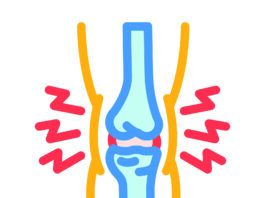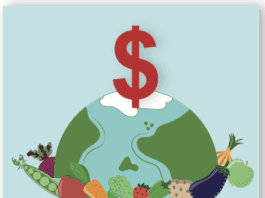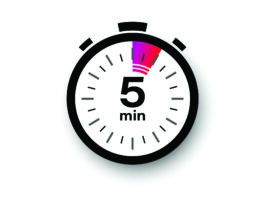Red Yeast Rice: Buyer Beware
Laboratory tests have revealed strik- ing variability in the active ingredi- ents in Chinese red yeast rice, a supple- ment touted as an alternative to statin drugs for improving cholesterol. Among 12 popular brands, levels of monacolin, which is related to the prescription cho- lesterol medication lovastatin, ranged from 0.31 mg to 11.15 mg per capsule. The type of monacolin (K) thats most similar to lovastatin varied from 0.10 mg to 10.09 mg per pill. Four samples also contained citrinin, which can dam- age the kidneys. Researchers noted that, as a dietary supplement rather than a drug, red yeast rice is largely unregulated and lacks the quality controls of pre- scription medications. Therefore, physi- cians should be cautious in recommend- ing red yeast rice to their patients. Long used in China, red yeast rice has recently soared in sales in the US, up 80% from 2005 to 2008.
Extra Sugar Adds 475 Calories a Day
Nutrition experts have been warn- ing us to watch added sugars for at least a decade, but Americans are still struggling to follow that advice. Rachel Johnson, PhD, MPH, RD, of the Univer- sity of Vermont, incoming chair of the American Heart Associations nutrition committee, told a recent conference that Americans average 475 daily calories from added sugars. Thats far more than the AHAs recommended maximum of 100 daily calories from added sugars for women and 150 for men-and equivalent to a whopping 30 teaspoons a day. So we have a long way to go, Johnson told attendees at the American Dietetic Association Food and Nutrition Conference and Expo. Added sugars and solid fats total about 35% of the calories in the average diet, she added; the recommended maximum is 5%- 15%. To start scaling back on added sugars, Johnson advised simply avoiding sugary soft drinks, the source of about 36% of added sugars in the US diet. But dont worry about naturally occurring sugars, such as in milk or plain versions of cereal or yogurt, she said. Check the label to see if sugar in any form is listed among the ingredients.
Snorers Risk Metabolic Syndrome
Snoring may be more serious than just keeping your partner awake: A new study says that loud snorers are at nearly double the risk of develop- ing metabolic syndrome, a cluster of symptoms associated with diabetes and heart disease. University of Pittsburgh scientists studied 812 patients, ages 45-74, in an ongoing community heart- health study. Over three years, 14% developed meta- bolic syndrome. Those reporting loud snoring, diff- culty falling asleep and unsatisfying sleep were at much greater risk of met- abolic syndrome. Among a subset of 294 patients evalutaed for sleep apnea, however, only loud snoring remained signif- cantly associated with metabolic syndrome once the data were adjusted using the apnea- hypopnea index (AHI). Research- ers concluded that healthcare profes- sionals should consider common sleep problems as possible risk factors when assessing patients. It could also be that this is a case of reverse causation, since obesity- part of metabolic syndrome-can cause snoring and other sleep problems
Whole-Grain Products Soar
The US food packagers are getting the whole-grains religion. The market-research organization Mintel predicts that 2010 will wind up being the biggest year ever for whole-grain product launches. Through the third quarter, new products with whole- grain label claims already totaled 651. The Mintel report credited the Whole Grains Councils stamp labeling program as a driving force in con- sumer awareness of whole-grain health benefts: Since the introduction of the Whole Grain Stamp in 2005, more than 3,700 new whole-grain food products have been introduced. The percentage of new products carrying a whole-grain label claim has jumped from 2.3% in 2005 to 5.6% in 2010. The trend is even stronger among foods boasting that theyre all- natural, with nearly one in fve also touting whole grains. (See our complete guide to cooking and using whole grains in this issues Special Supplement.)
Green Tea Boosts Fullness
S ipping a cup of green tea with a meal may help you feel more full and less likely to go back for seconds. Thats the conclusion of Swedish researchers, who compared the post-meal effects of green tea with plain water. Their study failed, however, to confrm hopes that the antioxidant-rich tea would also moder- ate insulin sensitivity or glucose levels, helping to curb diabetes risk. Research- ers observed study participants for two hours after a meal, quizzing them on satiety and how full they felt. Not only did participants report feeling more full when accompanying the meal with a cup of green tea, they were also less interested in eating another mouthful of the same food. When washing down the meal with plain water, participants were later more of a mind to go for a second helping.
Consumers Mixed on High-Fructose Corn Syrup
Despite assur- ances from the Corn Refners Association-which recently peti- tioned the FDA to allow high-fructose corn syrup (HFCS) to be labeled corn sugar-the public remains wary about the common sweetener, accord- ing to another Mintel report. In a new survey, 35% of consumers said they avoid products containing HFCS and 84% think government should require companies to disclose the quantity of HFCS in products. Todays consum- ers are demanding transparency across the board, commented Krista Faron, lead innovation analyst at Mintel. And when it comes to an ingredi- ent as controversial as high-fructose corn syrup, the majority of Americans clearly want complete information that will help them make informed purchase decisions. By a 45%-35% margin, however, those surveyed op- posed government limits on HFCS use. And 64% of consumers still think the sweetener is OK in modera- tion-an opinion that most experts, pending further research, would prob- ably agree with.
Nutrition Facts Coming for Meat
Wheres the beef? Or, rather, whats in the beef? Answers to your questions about the nutritional content of meats will be easier to come by next year. The US Department of Agriculture (USDA) announced that it will require those familiar Nutrition Facts labels be placed on most meat packages or made available to consumers at the point of purchase as of Jan. 1, 2012. The new rule will affect 40 of the most com- monly purchased cuts of beef, pork, poultry and lamb. Although nutrition labels have been required on most food packages since 1993, labeling of meats remained voluntary. Agriculture Sec- retary Tom Vilsack commented, It is appropriate for us to provide as much concrete information to consumers as we possibly can, without overwhelming them, so they can make good solid deci- sions about how many calories theyre consuming and how much activity they need. A spokesman for the American Meat Institute, which did not oppose the changes, said consumers will fnd some pleasant surprises on the new labels, since many supermarket shop- pers arent aware of the many lean choices in the meat case.
Echinacea Relieves Colds Only a Little
I f youve got the sniffes, echinacea probably wont help much, accord- ing to the latest randomized, controlled trial to report disappointing results from the popular herbal remedy. Uni- versity of Wisconsin researchers divided 719 cold sufferers into four groups: One group got echinacea (10.2 grams the frst day and 5.1 grams for 4 ad- ditional days) without being told about the treatment, a second group knew they were getting the herb, a third got a placebo and a fourth got nothing. Du- ration of symptoms ranged from 6.34 days in the blinded echinacea group to 7.03 days in the no-treatment group, with almost no difference between the unblended echinacea group (6.76) and the placebo group (6.87). Investigators found no statistically signifcant differ- ence in secondary outcomes, including infection markers and various self-re- ported symptoms. Although echinacea was associated with about a half-day beneft trend and 10% reduction in overall severity, researchers said only about one in four people would see relief likely to be worth the expense and effort of taking the herb. These re- sults, they concluded, do not support the ability of this dose of the echinacea formulation to substantively change the course of the common cold.
FTC Reins in Probiotic Yogurt Claims
The Federal Trade Commission (FTC), which regulates product advertising, will impose strict new limits on claims for Dannon probiotic yogurt products as part of a $21 mil- lion settlement of an investigation into the companys marketing. Dannon, however, insists the settlement means business as usual, stating, Our claims remain intact. The agreement with the FTC states that Activia, a spoonable yogurt touting digestive health benefts, can only claim to relieve temporary irregularity or help with slow intestinal transit time if it also states that three daily servings are required for this ben- eft. And Dannon, which has marketed its drinkable yogurt DanActiv as an immune-system booster, must not claim that any yogurt, dairy drink or probi- otic food or drink reduces the likelihood of getting a cold or the fu, unless the claim is approved by the Food and Drug Administration. The company insisted it had never made such claims. FTC Chairman Jon Leibowitz commented, These types of misleading claims are enough to give consumers indigestion.
Saccharin off EPA Toxic List
I f you remember the great saccharin scare of the late 1970s, it may come as a sweet surprise to learn that the US Environmental Protection Agency (EPA) has removed the artifcial sweetener from its list of hazard- ous substances. The switch clears the last offcial blemish from saccharins reputa- tion, with the FDA having given it an OK in 2000. Following studies linking saccharin with cancer in rats, the EPAs Carcinogen Assessment Group listed the sweetener as a possible human carcinogen in 1980. Now, in response to a petition from an artifcial- sweetener trade group, the agency has reversed that listing, saying theres insuffcient evidence that saccharin causes cancer in humans. Although not as popular in the US in part because of lingering can- cer fears, inexpensive saccharin remains the largest-volume artifcial sweetener in the world, primarily used in Asia.

























